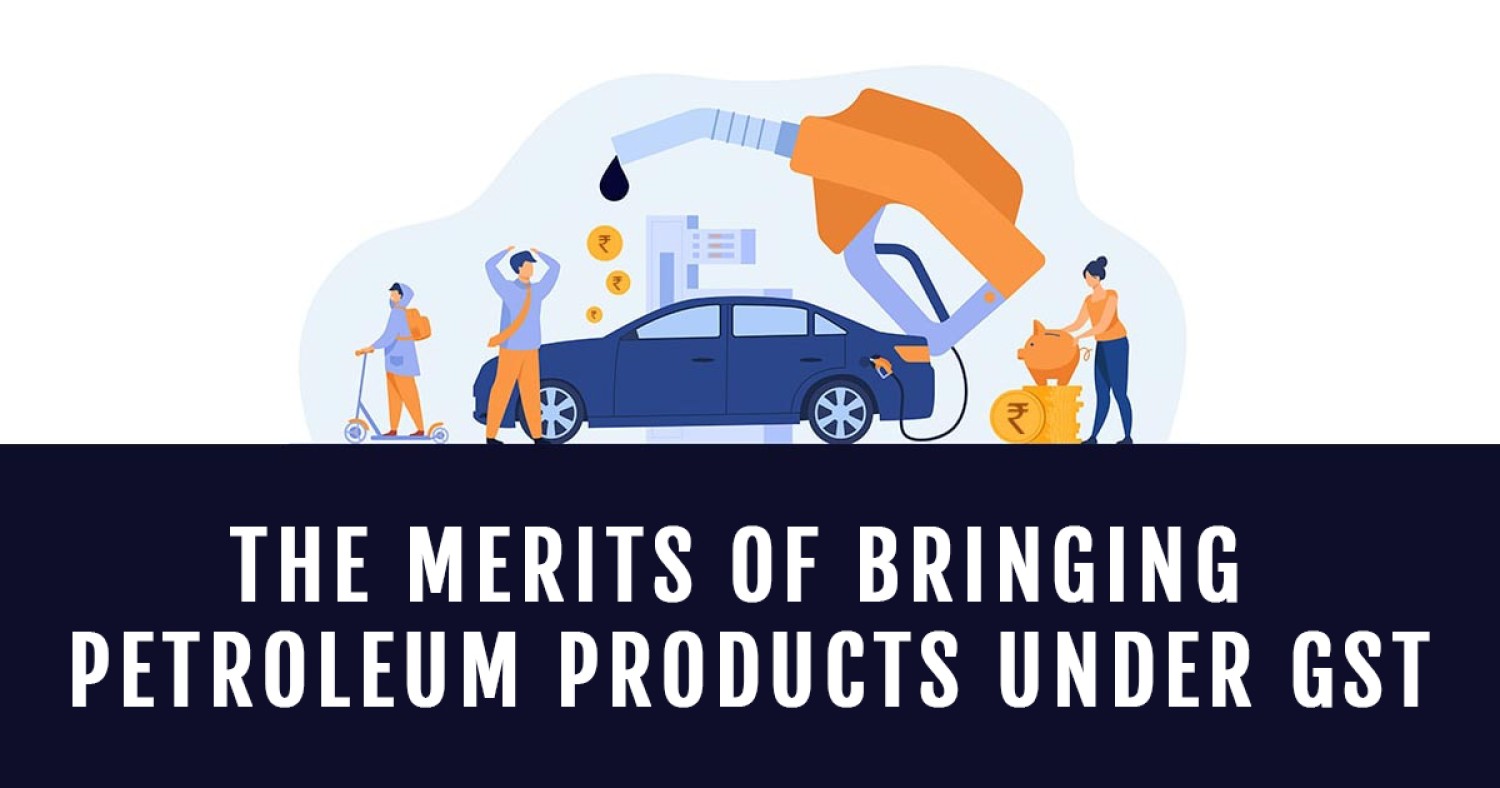THE MERITS OF BRINGING PETROLEUM PRODUCTS UNDER GST
Not many are aware, that the totals of taxes we pay on these two now exceed their total cost of production and marketing!
According to Business Standard, as much as Rs 31.20 in the retail price of Rs 60.70 a litre of petrol in Delhi is because of central and excise duties.
Based on average cost of gasoline and foreign exchange rate during the second half of October, it costs Rs 24.75 to produce a litre of petrol at refineries, industry officials said.
After adding company margin and other costs, the price charged to a petrol pump dealer is Rs 27.24 per litre. On this price is added Rs 19.06 of excise duty that the Center collects and a dealer commission of Rs 2.26 per litre. VAT or sales tax makes up for Rs 12.14 in the price of Rs 60.70 per litre in Delhi.
Same is the case with diesel. A litre of diesel at the petrol pump costs Rs 45.93 but its cost for a refinery is just Rs 24.86. After adding margin, oil companies transfer it to retail petrol pumps for Rs 27.05, officials said.
To this is added an excise duty of Rs 10.66 per litre and a dealer commission of Rs 1.43 a litre. VAT in Delhi adds another Rs 6.79 to take the retail selling price to Rs 45.93.
If Petrol and Diesel were brought in GST ambit, price could reduce by almost half!
If these products were to be covered by GST too, and even if take them under the highest slab of 28%, net price of petrol per litre could be as little as Rs. 34.86 and that of diesel Rs. 34.63. That is a reduction of over 40% in price!! There would be an equivalent saving on diesel too.
GST rules, as they stand now will cause massive losses all around
As per a report in ET, with the GST rollout, oil producers, refiners and marketers could take a hit of as much as Rs 25,000 crore per annum. The GST Council, the body of Union and state finance ministers, is to decide the date for bringing petroleum products under GST but it would have been better for consumers and industry as a whole if it had been done at the outset only.
But as of now, petroleum crude, natural gas, diesel and petrol are all out of the GST framework. So, input taxes paid on the output of crude oil, gas and automotive fuel would not be creditable, thus jacking up the tax burden. Oil products such as cooking gas, kerosene and naphtha are included in the GST regime, so some taxes can be set-off against taxes already paid. But it would be a messy situation that could have been avoided.
As situation stands now, Oil companies would need to comply with both the old and new tax regimes. Tax credits won’t be transferable between the two systems.
For many reasons, we needed to bring all petroleum products into the GST framework. India’s large and fast-growing transportation, logistics and distribution sector needs to be made tax-efficient with GST on fuels. It would be on par with global practice and boost India’s competitive advantage right across the board.


